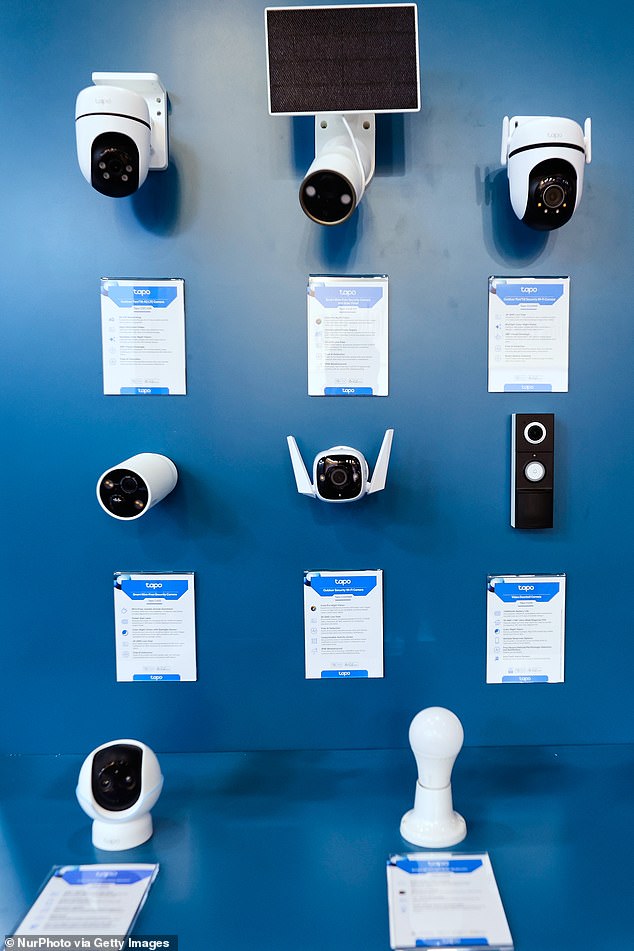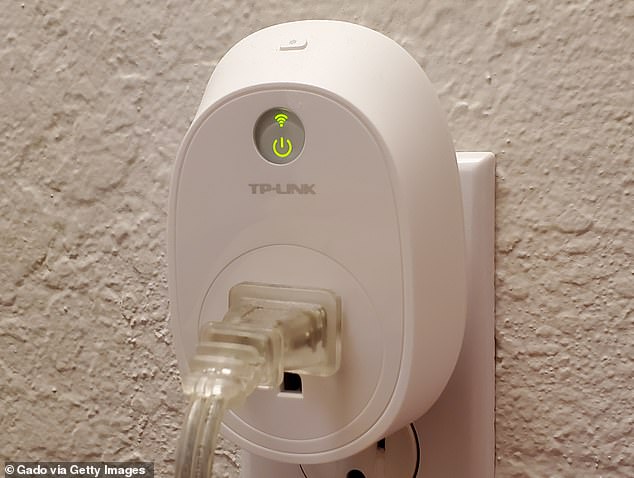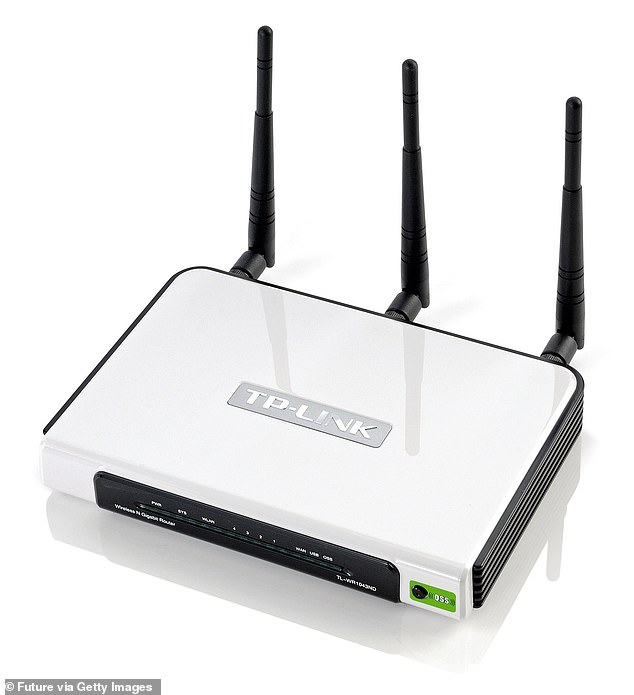Internet device found in 65% of American homes faces ban over new China hacking fears
A popular home internet router from China could be completely banned as soon as next year as authorities investigate their possible link to fears of cyber attacks.
China-based router manufacturer TP-Link is under federal investigation after recent cyberattacks on top U.S. officials fueled urgency to destroy any national vulnerabilities to more cyberthreats.
The company has a 65 percent market share in the United States and is the top choice on Amazon. It also provides Internet communications for the Department of Defense and other federal government agencies.
However, amid growing fears of cyber attacks and national security threats, the popular products could be banned from sale as early as next year, the company said. Wall Street Journal.
Sources familiar with the matter told the newspaper that a Commerce Department office has subpoenaed TP-Link.
The ban on the products would be in the hands of newly-elected President Donald Trump, who has already signaled an aggressive approach to China upon taking office.
Concerns about the Chinese products arose in October after Microsoft published a cybersecurity report that found a Chinese hacking entity maintains a large network consisting mainly of compromising thousands of TP-Link routers.
Numerous alleged cyber attacks took place via the network, the WSJ reports, including against government organizations and suppliers of the Ministry of Defense.
China-based router manufacturer TP-Link is under federal investigation after recent cyber attacks on top US officials fueled urgency to destroy any national vulnerabilities to more cyber threats

Concerns about the Chinese products arose in October after Microsoft published a cybersecurity report that found a Chinese hacking entity maintains a large network consisting mainly of compromising thousands of TP-Link routers.
Sources close to the matter claim, according to the outlet’s report, that the company often sends routers to customers with security flaws that they are then unable to fix.
Although routers often contain bugs anyway, TP-Link does not engage with security researchers who are concerned about them, the report said. While a spokeswoman for the company’s California-based unit said they are assessing potential security risks and taking action to address known vulnerabilities.
“We welcome any opportunity to engage with the U.S. government to demonstrate that our safety practices are fully compliant with industry safety standards, and to further our continued commitment to the U.S. market, U.S. consumers, and addressing U.S. national demonstrate safety risks,” the spokeswoman said. told WSJ.
If the products are banned, it would be the largest extraction of Chinese telecom equipment from the country since the Trump administration ordered Huawei Technologies removed from US infrastructure in 2019, the outlet said.
TP-Link has already joined more than 300 Internet service providers in the US to be the router emailed to new homes that sign up for their services.
Their market dominance is believed to be related to their low prices, as they often cost more than half the cost of competitors.
However, the low costs are being investigated by the Justice Department to see if the price differences violate federal law that prohibits attempts at monopoly by selling products for less than they cost to make.
The Biden administration is exploring possible action against the company as part of a broader response to the recent cyber attacks linked to China, WSJ reported.

A spokeswoman for the company’s California-based unit said they are assessing potential security risks and taking action to address known vulnerabilities

The company has a 65 percent market share in the United States and is the top choice on Amazon. It also provides Internet communications for the Department of Defense and other federal government agencies

As tensions rise between China and the United States, TP-Link’s founders, Shenzhen brothers Zhao Jianjun and Zhao Jiaxing, have sought to distance the company from China.
Part of the response may include completely purging US China Telecom of US telecom infrastructure.
According to WSJ sources, the Defense Department has launched an investigation into national security vulnerabilities in Chinese routers. The Chinese Communist Party’s House Select Committee urged the Commerce Secretary in August to investigate TP-Link because it shows an “unusual degree of vulnerability,” the newspaper said.
Cyber threats became apparent after phone calls from Trump, newly elected Vice President JD Vance and senior Biden administration officials were targeted in a hacking campaign. The phone calls, which became public this fall, made the matter urgent.
U.S. officials believe the Chinese hackers compromised at least eight U.S. telecommunications providers in their attempt to spy on top political figures in the U.S., U.S. officials said. CNN.
The Trump transition team did its best to prevent attacks by switching which phones senior staff used and holding in-person meetings at Trump’s Mar-a-Lago estate in Florida.
However, a spokesperson for the Chinese embassy in Washington accused the US of using the guise of national security to “suppress Chinese companies” and that Beijing would “resolutely defend” the legitimate rights and interests of Chinese companies.
As tensions rise between China and the United States, TP-Link’s founders, Shenzhen brothers Zhao Jianjun and Zhao Jiaxing, have sought to distance the company from China.
According to the WSJ, the company said in a statement that the new headquarters in California would “solidify its presence in the U.S. market.”

The US isn’t the only country wary of the devices, as Taiwan has banned the routers from government and educational institutions. The Indian government also warned TP-Link that the routers posed a security risk

Threats became apparent after calls from Trump, newly elected Vice President JD Vance and senior Biden administration officials were targeted in a hacking campaign. The phone calls, which became public this fall, made the matter urgent
The company also recently changed the name of its Chinese entities, one of which is working on more than half a dozen Chinese government-run research and development projects, the outlet reported.
Last year, a U.S. federal judge in a patent dispute rejected the company’s argument that there was no relationship between the U.S. and Chinese companies, calling the claim “implausible.”
The US isn’t the only country wary of the devices, as Taiwan has banned the routers from government and educational institutions. The Indian government also warned TP-Link that the routers posed a security risk.
DailyMail.com has contacted TP-Link for comment.
